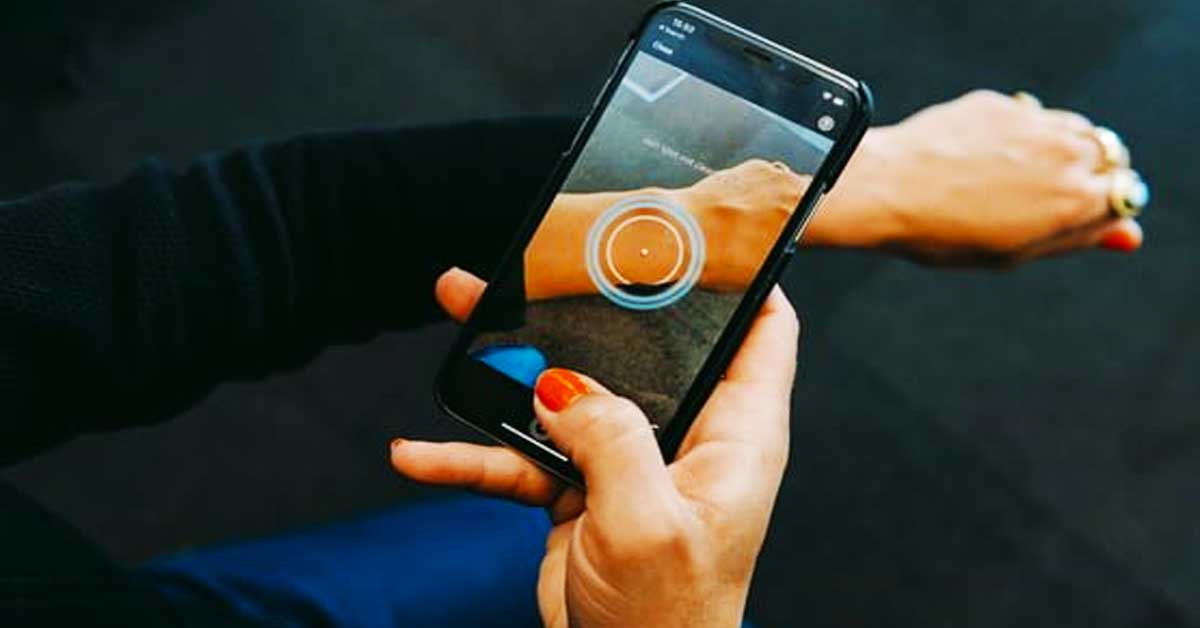Technology has become a valuable ally in solving everyday challenges in today's digital era. Among the groundbreaking innovations, Google Lens is a powerful tool that utilizes image search to provide users with detailed information about various topics, including skin conditions.
Google Lens allows users to effortlessly capture or upload photos to find visual matches and obtain relevant information about various subjects, including skin conditions.
By simply taking a photo or uploading an image of the affected area, users can initiate a search to find visual matches and gain valuable information about potential conditions.
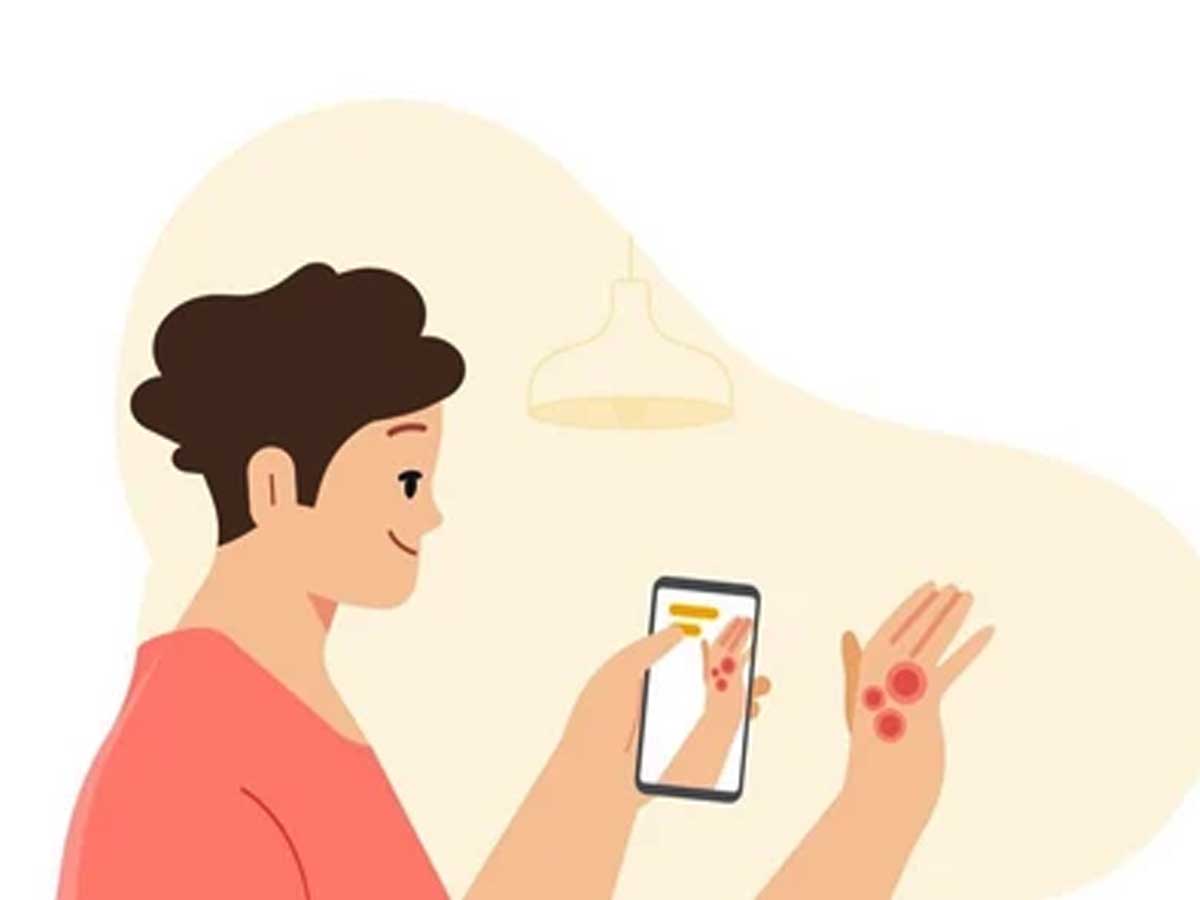
It is essential to note that the results obtained through Google Lens are meant for informational purposes only and should not replace professional medical advice or diagnosis.
At the 2021 I/O developer conference, Google showcased its cutting-edge research on AI image recognition for skin conditions. Their groundbreaking tool identifies skin conditions and extends its capabilities to hair and nail conditions.
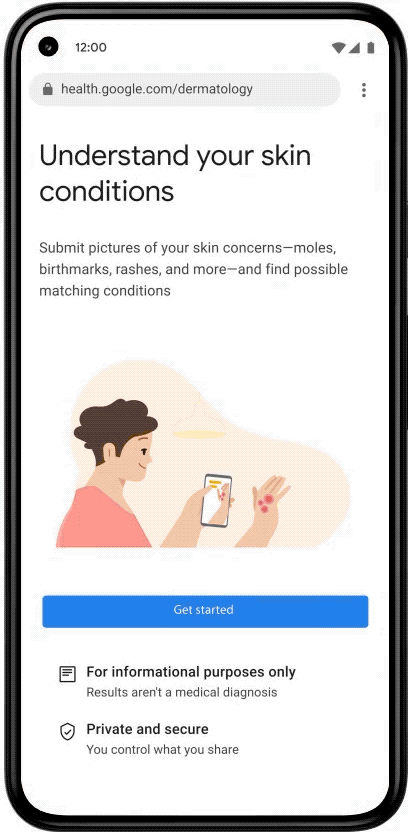
Powered by advanced AI algorithms, this tool can recognize an excellent 288 different conditions and boasts an impressive 84% accuracy rate in suggesting the correct condition among the top three possibilities.
The tool previewed at the conference represents a significant leap forward in AI-driven skin condition identification. With its robust capabilities, this tool has the potential to revolutionize how individuals gain insights into their skin health.
However, it is important to note that the tool is currently undergoing limited market testing and has yet to be evaluated by regulatory authorities such as the US FDA.
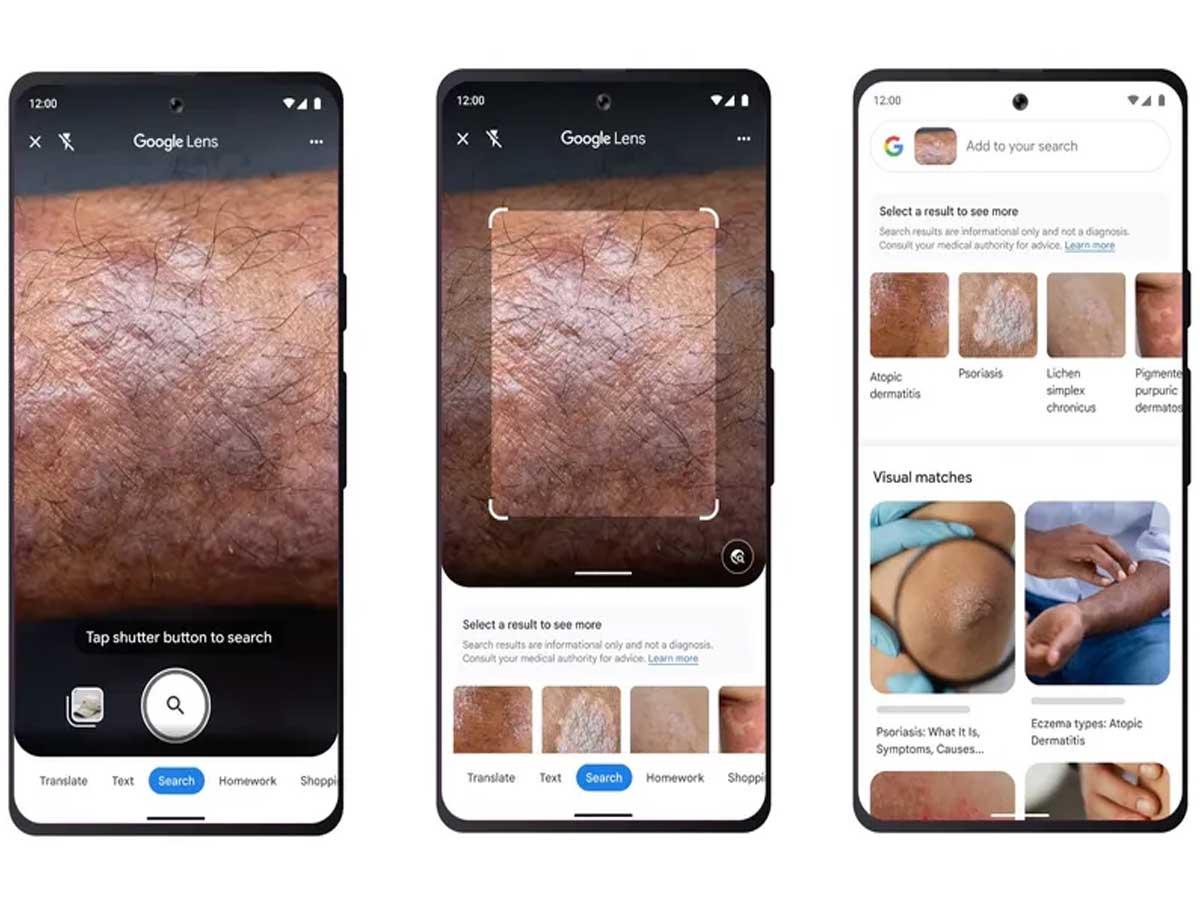
While Google Lens and the AI-driven tool offer valuable insights into skin conditions, being aware of certain considerations is crucial. One such challenge lies in the potential discrepancy in accuracy for users with darker skin tones.
Research indicates that the lack of sufficient skin type data and representation of dark-skinned individuals in training image databases can impact the performance of AI diagnostic tools.
To address this challenge head-on, Google has partnered with Ellis Monk, a distinguished professor from Harvard, renowned for their expertise in dermatology. This collaboration aims to promote the Monk Skin Tone Scale and establish best practices for AI development, ensuring fair and accurate performance across different skin tones.
Google's teams have embraced the Monk Skin Tone Scale for ML labeling tasks, ethnographic research, and fairness testing, fostering inclusivity and reliability in AI systems.
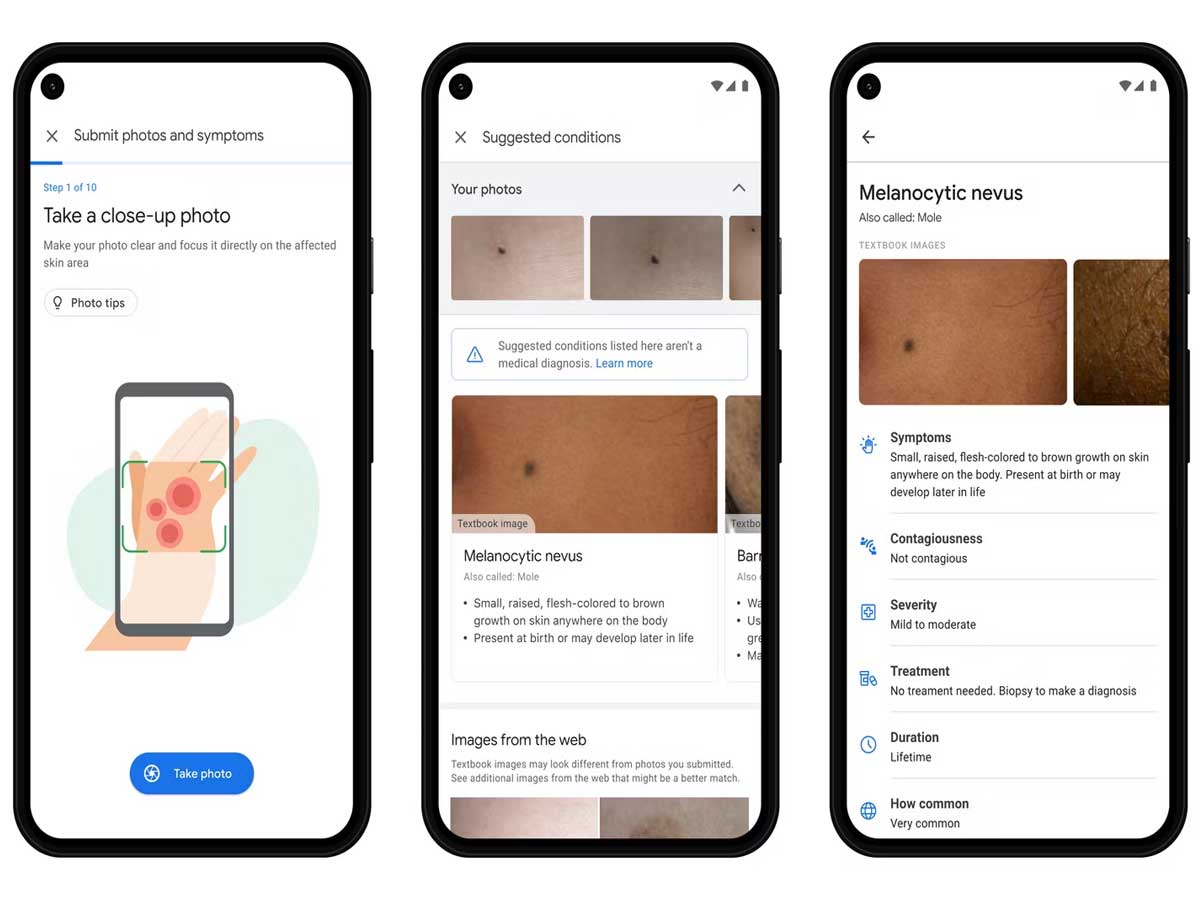
In a remarkable breakthrough, Google's deep learning system has showcased exceptional accuracy in identifying skin conditions, particularly in Black patients.
According to slides presented by Google, the system achieved an impressive accuracy rate of 87.9% for Black patients, surpassing the accuracy rates for other ethnicities. This accomplishment demonstrates the potential of AI technologies to bridge gaps in dermatological diagnosis and treatment.
Beyond its remarkable skin condition recognition features, Google Lens offers a myriad of additional functionalities that enrich the user experience. As an augmented reality (AR) service, Lens, in conjunction with Google Maps Live View, provides users with a holistic experience by offering information about their surroundings.
Moreover, Google Lens can be utilized to identify Other physical disorders, such as bumps on the lip, lines on nails, or even hair loss, empowering individuals to gather information and make more informed decisions about their health.
Google has taken integration further by incorporating Lens into Bard, an AI-powered chatbot experience. Users can now include images in their prompts, leveraging the powerful analysis capabilities of Lens.
By providing visual information, users receive more accurate and relevant responses from Bard, making the interaction more engaging and informative.
Google's commitment to pushing the boundaries of AI technology is evident in its investment in generative AI technologies. With its ability to write, execute, and test its code, Bard showcases the potential for AI-generated content.
Additionally, Google has partnered with Adobe, a leader in creative software, to explore the fascinating realm of art generation through the collaboration of these cutting-edge technologies.
While Google Lens expands its functionality to encompass a wide array of visual information, it is important to highlight that tools like DermAssist, a health app specifically designed for identifying conditions, are currently out of stock in the United States and have yet to be evaluated by the FDA.
As such, it is crucial to understand that while providing valuable information, Lens is not a substitute for professional medical advice or diagnosis.
Google continues to innovate and expand the capabilities of Lens, users can anticipate even more comprehensive features that enrich their experiences, including the eagerly awaited skin condition search functionality. With Google Lens as your trusted visual guide, knowledge is just a click away.
Sources: vice.com / theverge.com / blog.google
